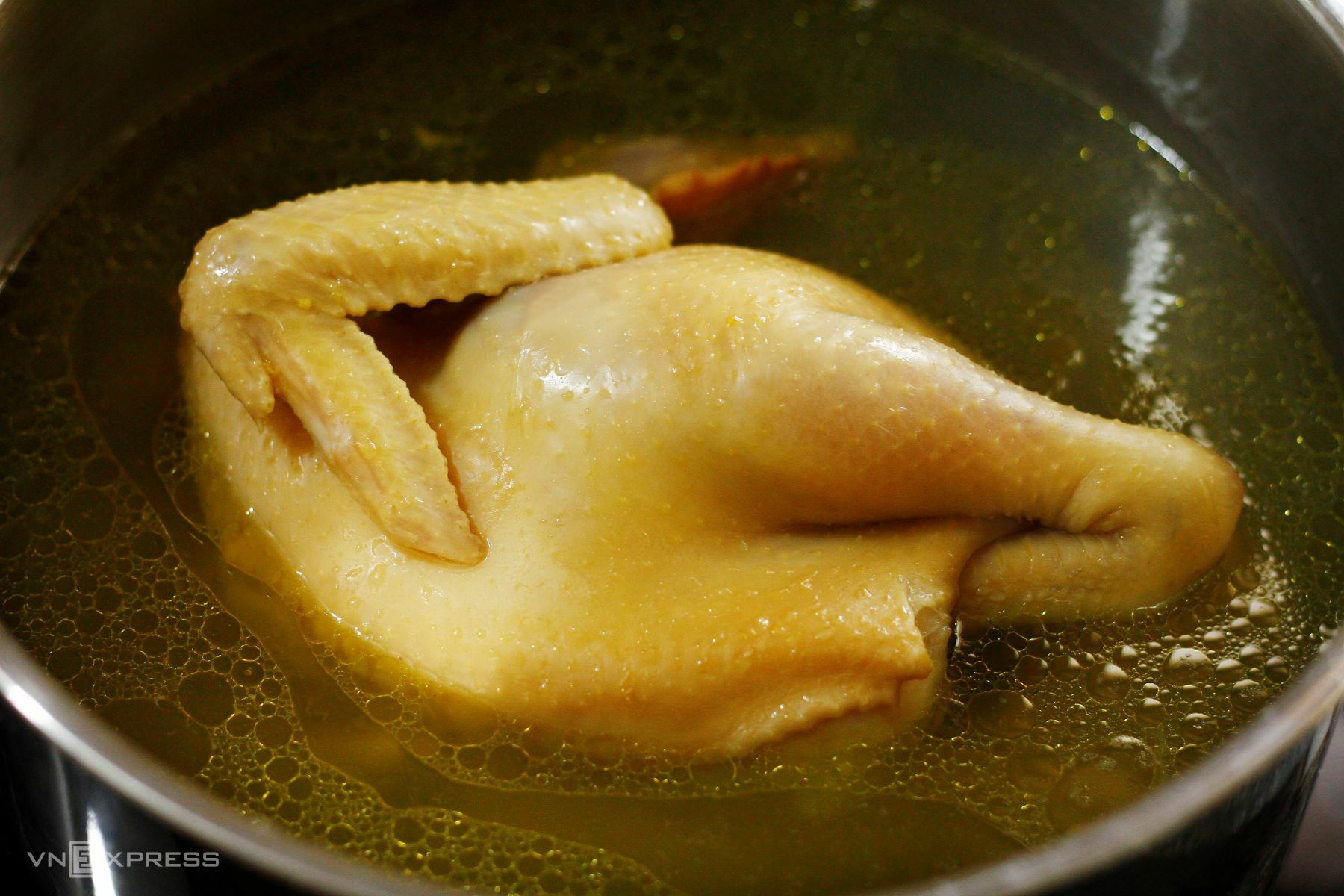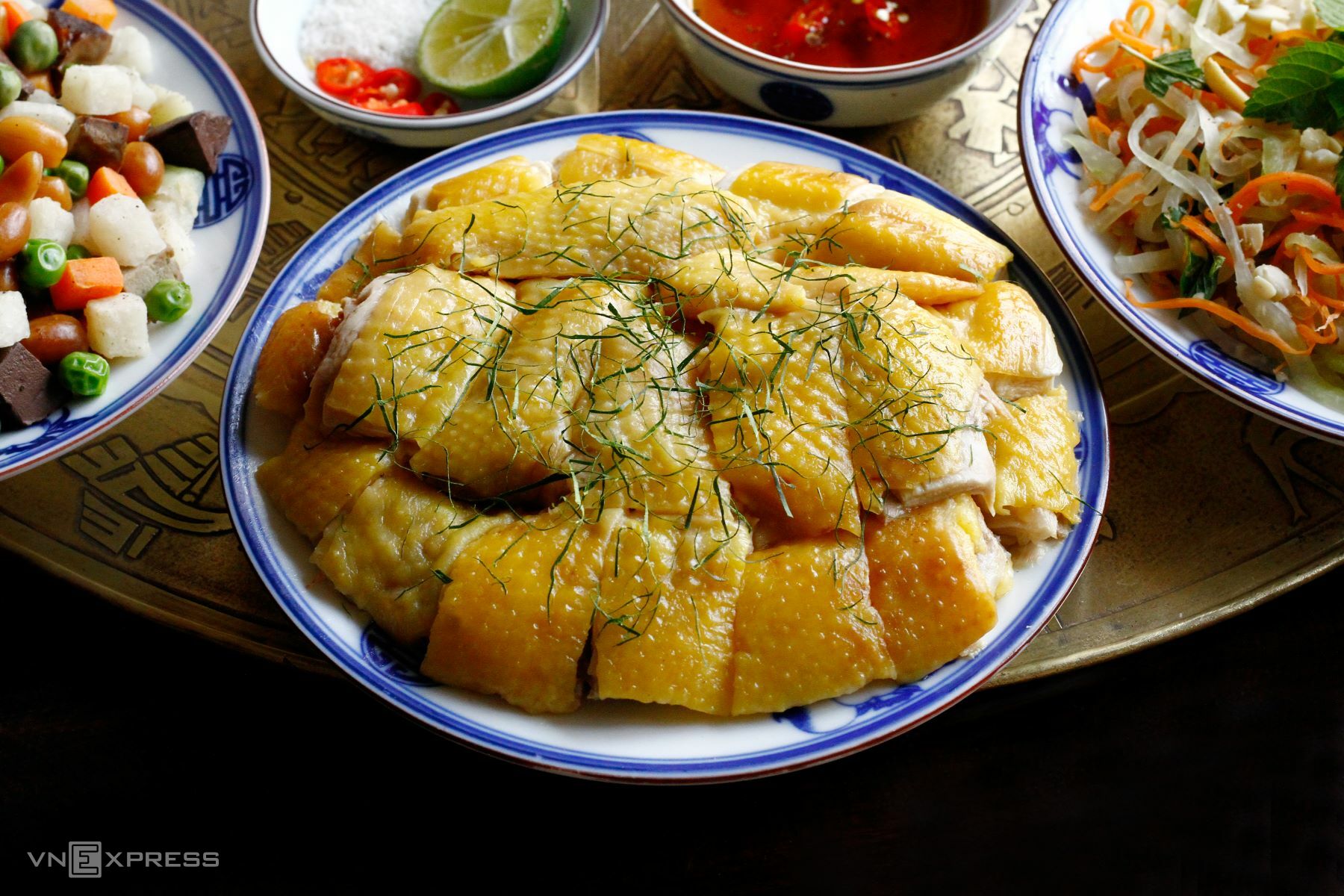Experience suggests that after boiling chicken for 5-7 minutes from the moment the water boils, you should turn off the heat and let it sit, covered, in the hot water for 20-30 minutes (depending on the size of the chicken). This allows the chicken to cook through evenly, resulting in moist, tender, and flavorful meat without tearing the skin.
Scientifically, chicken has a dense and firm muscle structure. It's best to simmer it over low heat and let it soak in the hot water for a while before removing. Maintaining the temperature allows the protein to cook gently, preserving moisture and creating a crispy, golden skin. Avoid boiling over high heat, as this causes the protein to contract and expel water, resulting in dry meat and torn skin.
 |
Soaking boiled chicken in hot water for about 20-30 minutes on the stove helps the meat become more tender and flavorful. Photo: Bui Thuy |
This cooking technique isn't new. In Western cuisine, dishes like Panini Bollite and the boiled beef sandwiches at Mercato Centrale in Florence, Italy, are prepared using this principle.
Furthermore, when boiling chicken, the collagen in the skin and muscle tissues transforms into gelatin, creating a natural sweetness that enhances the flavor. Removing the chicken immediately after it's cooked prevents the collagen from fully converting, resulting in a less tender and flavorful dish.
Additionally, chicken needs time to rest in the hot water after the heat is turned off. Immediate removal prevents the broth from permeating the meat, leading to dryness and a loss of natural sweetness. The gradual temperature decrease during soaking helps retain the chicken's essence and minimizes nutrient loss. Scientific studies show that chicken broth is rich in collagen, gelatin, amino acids, and minerals like calcium and iron. These nutrients are partially absorbed back into the chicken during soaking, increasing their bioavailability.
In Eastern culinary philosophy, chicken broth symbolizes the Water element, associated with coolness and purification. Chicken meat, with its warming properties, represents the Fire element, promoting energy and health. Soaking the chicken harmonizes these yin and yang elements, creating balance in the dish. Removing the chicken too early prevents this fusion, resulting in a less harmonious dish that doesn't maximize its nutritional benefits.
 |
Here are a few tips for making delicious and nutritious boiled chicken:
Depending on your taste and purpose, you can start boiling the chicken in either cold or hot water. For naturally sweet meat, start with gently simmering water (70°C). If you want a flavorful broth for other dishes, start with cold water.
Ensure enough water to cover the chicken for even cooking and prevent discoloration of the comb, especially when boiling a rooster for special occasions. Use a thick-bottomed pot to prevent scorching and tearing the skin. If you don't have one, place a small plate at the bottom of the pot before adding the chicken.
Adding salt, ginger, and other seasonings to the water enhances the flavor. After 5-7 minutes of boiling, turn off the heat and let the chicken soak, covered, in the broth for 20-30 minutes. After removing the chicken, let it drain and cool before chopping for cleaner cuts. Chopping hot chicken can easily tear the meat, making it less visually appealing.
Bui Thuy












